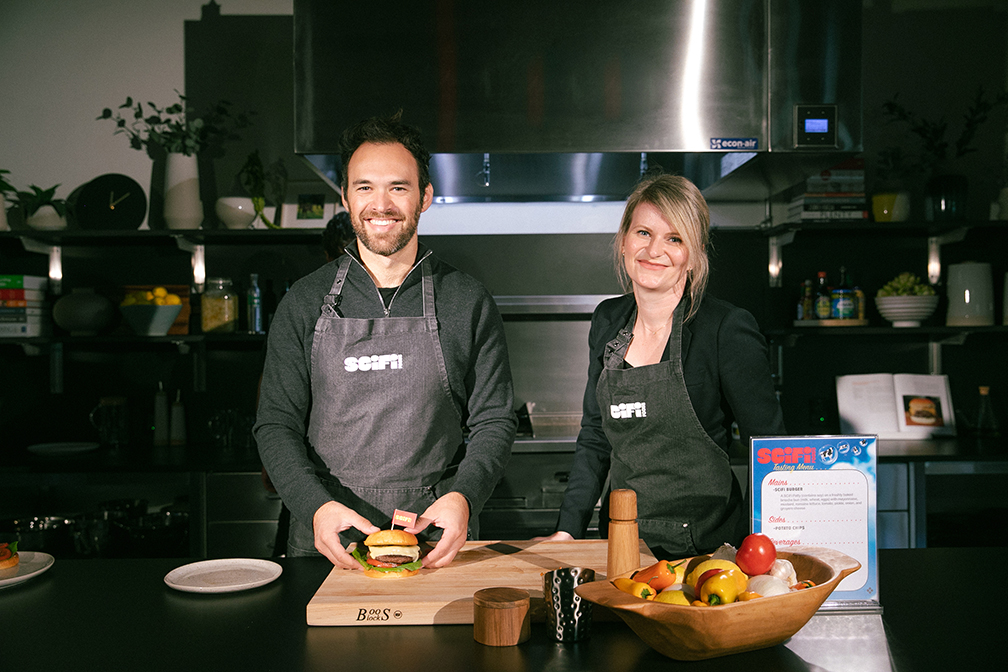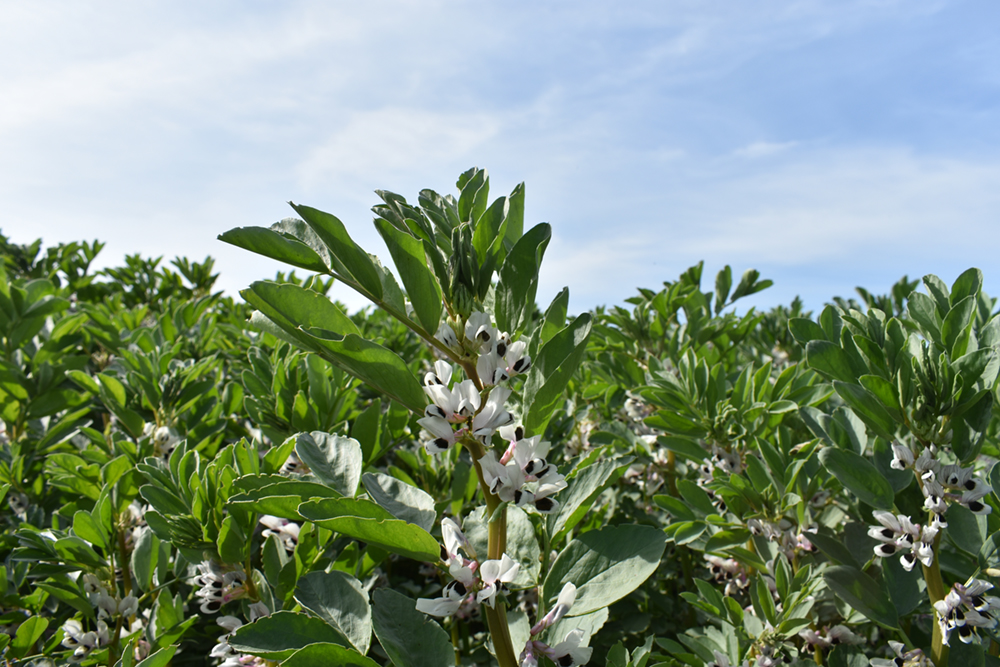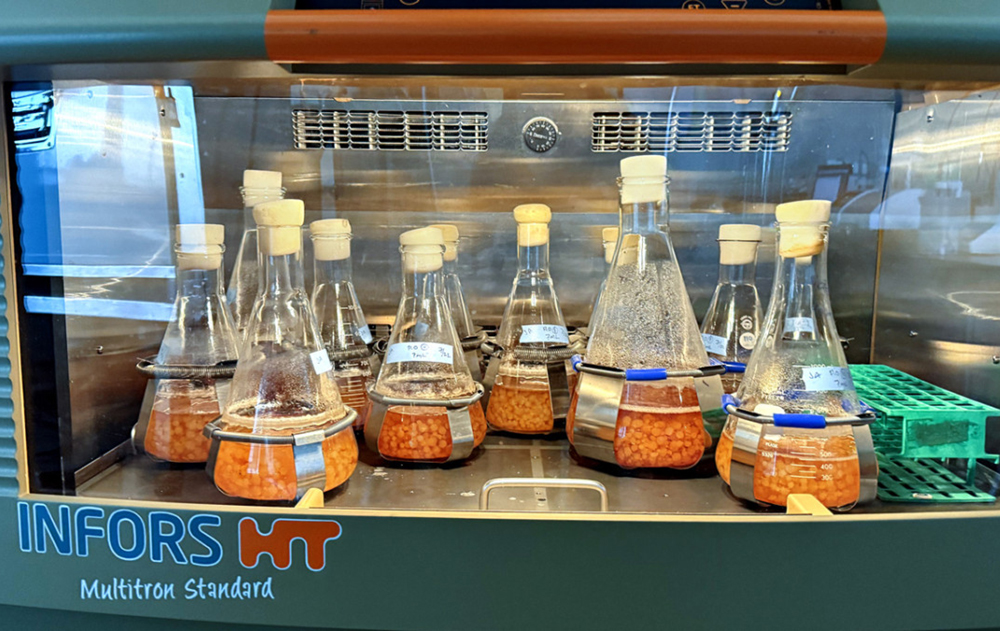

GFI and Tufts unlock SCiFi Foods’ cell lines for public use, marking a historic breakthrough for cultivated meat R&D
In an unprecedented step for the cultivated meat industry, the Good Food Institute (GFI) has acquired key bovine cell lines and serum-free media originally developed by SCiFi Foods and partnered with Tufts University’s Center for Cellular Agriculture (TUCCA) to make them publicly available. The move represents the first time suspension-adapted bovine cell lines have been released for open use, offering academia and startups alike a major shortcut in research and development that could save the sector millions and shave years off product timelines.
The initiative followed SCiFi Foods’ decision last year to cease operations and execute an assignment for the benefit of creditors. When the company’s assets went to auction, GFI placed a bid for multiple bovine cell lines and the necessary growth media, securing them in late August 2024. By mid-September, the materials were transferred to Tufts for storage and distribution.
“This purchase represents a pivotal moment for open science in cellular agriculture,” said Dr Amanda Hildebrand, GFI’s Vice President of Science & Technology. “By making these cell lines and media broadly accessible to the cultivated meat ecosystem, researchers and companies have a new starting line – one that’s now closer to the finish line of bringing new products to market.”
Hildebrand described SCiFi’s technical achievements as a “baton in a relay.” She added, “Given our role in the field, GFI was able to ensure that baton didn’t drop, and through our partnership with Tufts, copies of that same baton will be handed off to scientists and startups around the world. This type of open-access jump-start invites more people to the field, gives everyone a better starting position, and ultimately can produce more winners – companies that get more products to consumer plates, and consumers who have more choices for foods they love.”
The practical implications for the field are far-reaching. Developing cell lines and compatible growth media can cost startups between US$2 million and US$10 million, and consume years of effort. By providing ready-to-use, suspension-adapted bovine cells and serum-free media, GFI and Tufts have effectively removed one of the largest barriers to entry for cultivated meat R&D. For every 10 startups, the move could collectively save the industry anywhere from US$20 million to US$100 million.
Dr Elliot Swartz, GFI’s Principal Cultivated Meat scientist, emphasized that these are the first immortalized bovine cell lines in suspension to be made available to the R&D community. “Open access to these cells and their corresponding media formulations will allow researchers to immediately start experiments in small bioreactors and refine their process development,” he said.
Dr. Andrew Stout, Assistant Professor of Biomedical Engineering at Tufts and a member of the Center for Cellular Agriculture, said the release of these materials could transform the quality and relevance of research across the field. “The most exciting thing to me about making these cells and media formulations accessible to researchers around the world is that it will immediately elevate the relevance and impact of R&D throughout the field,” he said. “So many experiments currently take place in small-scale systems, and at the end of the day those experiments can only go so far in informing large-scale, bioreactor-based processes. When labs across the field have access to shared, scalable, and serum-free systems, I think it will cause a real leap in the value and applicability of their research.”

Tufts and GFI will first make the cell lines available to academic researchers through the Tufts Cellular Agriculture Commercialization Lab, before opening access to industry partners at a later stage. Researchers can join a waitlist to request shipments of the top three cell lines currently banked at Tufts, while the open-source media formulations have already been published online.
According to Dr David Kaplan, Distinguished Professor at Tufts University School of Engineering and Executive Director of the Center for Cellular Agriculture, securing SCiFi’s progress was critical to preserving knowledge and momentum in the field. “Startups are subject to constant changes in the funding ecosystem, so it was important to secure SCiFi’s progress on cells relevant to the field and the associated knowledge, to avoid lost investments and innovation,” he said. “I am excited that Tufts and GFI are able to work together to support the needs of the cellular agriculture community to build and iterate upon this IP and provide access to all, in order to continue driving progress in cultivated meat.”
For GFI, the acquisition aligns with its broader mission to accelerate the alternative protein sector through open science, collaboration, and infrastructure-building. The nonprofit frequently acts as a field catalyst, leveraging its networks to remove shared technical bottlenecks and help cultivated meat compete on taste, price, and nutrition.
SCiFi Foods’ Co-founder & CEO, Joshua March, said the company’s four-year effort to develop its bovine cell lines represented a major technical achievement that he was proud to see live on through this initiative. “When we started SCiFi Foods, we had to start from square one, beginning with a small sample of cells from a cow on an actual farm,” March said. “It took us four years and tens of millions of dollars to develop these cells into commercial cell lines that grow quickly in suspension and in serum-free media. Despite our disappointment that we can’t take the SCiFi burger to market, we are extremely excited by GFI’s acquisition of our cell lines and the collaboration with Tufts for use by the field.”
He added, “As a nonprofit at the center of all things alt proteins, GFI was uniquely able to take our hard-won progress and leverage it for the greater good of the whole sector. Although we are at the end of the line at SCiFi Foods, we hope this is just the beginning of the cultivated meat industry.”
With shipments to academic labs expected to begin soon, GFI and Tufts’ collaboration may well prove to be one of the most impactful interventions yet in the sector’s push toward open innovation – transforming a private company’s closure into a shared foundation for the next generation of cultivated meat research.
If you have any questions or would like to get in touch with us, please email info@futureofproteinproduction.com

.png)






